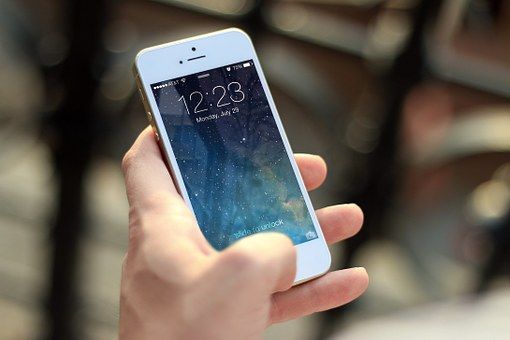What to do if your parents or guardians refuse to let you have access to mental healthcare

Online test
Find out the severity of your symptoms with this free online test
Telling your parents about trichotillomania is one thing, having them understand is another thing. However, if you live years without telling them it will eat you up inside, leading you to feel like you are not normal and don't know how to express it to the ones who are supposed to be closest to you. You can't expect anyone to understand unless they have gone through the same thing but maybe if you told them and explained and showed them websites and videos they might start to understand you a little more. However, if after explaining your disorder to your parents, they still don’t support you receiving access to mental healthcare, this can be tricky. Legally, you have to be 18 or older to consent to receive mental health treatment. If you are under 18 the consent needs to br granted by a parent or legal guardian. In some cases, a minor who is 14 or older can ask a court to grant consent for treatment on your behalf. Of course, it is difficult to comment on this subject extensively, as it really depends on the country, and even the state you live in and the federal laws that govern them. If you feel you need professional mental health intervention, it is best to seek advice and information from your school counsellor where available, or one of the advocacy groups practicing in your country. In the case of body focused repetitive behaviors, the TLC BFRB Foundation is an organization based in the US, but has a global membership.
Try to understand their reasons for refusing
Every person, and indeed every parent is different. Their world views. their fears and insecurities, their relationship with you, religious beliefs, even social status can impact on the way a parent responds to the news that thwir child is struggling with the compsulsion to pull their own hair. It may be difficult, but it is important to try to understand, without judgement why it is they believe what they do. For example if the struggle is financial, you may be able to research treatment alternatives that will not break the bank. If their struggle is fear or denial, it may help to educate them through blogs or videos showing others who suffer from the same disorder. There are even a number of documentaries that may assist in this. Of course, there will be times when the reasons a parent resists can not be altered, for these instances it may be worth exploring accessible options you can access on your own.
Self-help and Online Therapy
There are many self-help videos and articles for managing a number of mental disorders, including compulsive hair pulling disorder. On Trichstop's website, we also provide a free questionnaire that helps you discover the severity of your hair pulling. We have also created a free self-monitoring app that helps you develop awareness and understanding of your pulling patterns and triggers. You can also access our free community forum where you can reach out to others going through similar challenged and perhaps learn from their experiences. There are many other online service providers offering either free or more affordable treatment for people with body focused repetitive behaviors such as trichotillomania. It is important to note though to be careful to do your research to make sure that you do not pay scammers. Check reviews, testimonials, check on their social media pages and where they have a forum, check whether they actively engage with their community or what their followers have to say about them. Also check whether they have a refund policy. It is important to note that NOBODY can GUARANTEE 100% success as every person with trich is different and so every person responds to treatments differently.
Mobile Apps

In the modern age of technology where many people have access to a smart phone, there are thousands of mobile applications for almost anything you can think of, including self-help tools for mental health. We have already mentioned the free Trichstop self-monitoriing mobile app, but there are many others that offer specific treatment techniques known to be helpful for people with BFRBs, such as meditation and journaling. While not all of these are available on all mobile platforms, these are just an idea of what is available. As with self-help programs, be sure to vet the service provider if you are ever asked to part with your money. Here are just a couple examples of free apps suggested by Psychiatry Advisor:
- Breathe2Relax is an app developed for stress management. It walks users through breathing exercises that help to reduce stress , stabilize mood, control anger, and manage anxiety. The app’s developers note that it can be used on its own to help reduce stress or in combination with other therapies. Breathe2Relax is available for free on both iOS and Android devices
-
SAM is an app designed to help people manage their anxiety. Users can record their anxiety levels and identify different triggers. The app includes 25 self-help options to help users cope with the physical and mental symptoms of anxiety. Users can create a personalized anxiety toolkit, adding in the features of the app that they find most useful for easy access. The app also has a social cloud feature that allows users to anonymously share their experiences with other SAM users. SAM is available for free on both iOS and Android devices.
The Anxiety and Depression Association of America also provides a free app review service where ADAA members consisting of mental health professionals with degrees in psychology, medicine, social work, and counseling voluntarily review the apps based on ease of use, effectiveness, personalization, interactivity/feedback, research/evidence. They also list the price and links to the app. Here are a couple of the free apps that have received positive reviews from ADAA:
- MoodTools is a self-help app targeting depression. It provides psychoeducation about risk factors and psychosocial approaches to treatment, a depression symptom questionnaire (PHQ-9), a thought diary, a suicide safety plan, and videos such as meditation guides. Available on iOS and Android
- Mindshift is an app targeted to help adolescents, teens, and young adults gain insight into and basic skills to manage their symptoms of anxiety disorders, including GAD, social anxiety, specific phobias, and panic attacks. It’s also useful for managing worry, performance anxiety, test anxiety, and perfectionism. The skills taught may be applied to individuals with physical, emotional, cognitive, or behavioral manifestations of anxiety, providing users with more helpful, balanced ways of thinking about feared situations. It does a terrific job of readily offering lists of active coping strategies tailored to the type of anxiety and a variety of methods to manage anxiety; the information and strategies are simple and clear. "Chill out" tools such as breathing exercises, mental imagery, and mindfulness strategies are provided in text and audio format. "Quick Tips" are included to assist with anxiety in the moment. Users can "favorite" the methods that work for them. It is not helpful for people looking to track their symptoms and progress, those easily overwhelmed by many choices, or those with posttraumatic stress disorder (PTSD) or obsessive-compulsive disorder (OCD). Available on iOS and Android
Online test
Find out the severity of your symptoms with this free online test
Start your journey with TrichStop
Take control of your life and find freedom from hair pulling through professional therapy and evidence-based behavioral techniques.
Start Now



